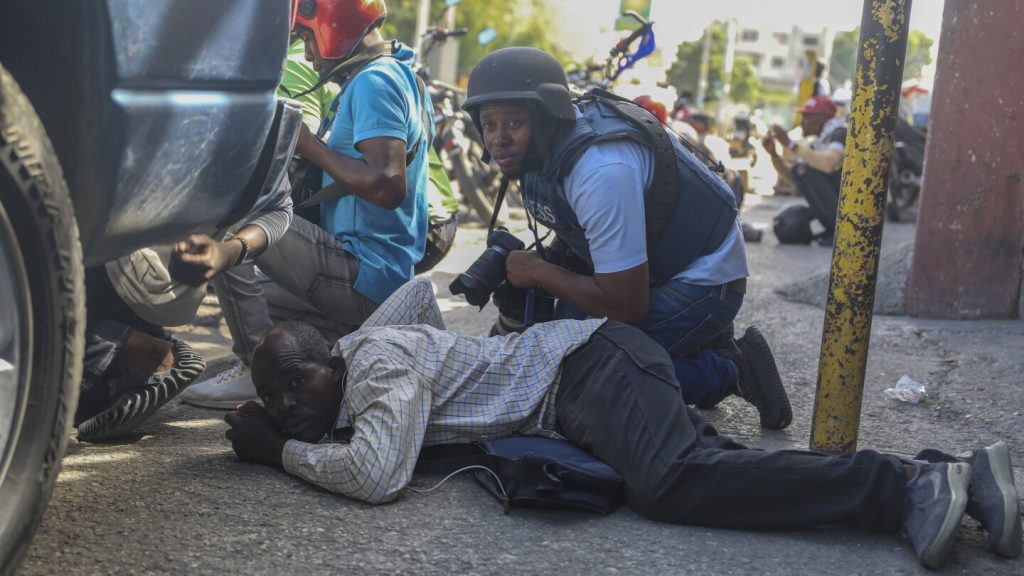Haiti’s international airport shutdown on Monday after gangs fired at a commercial flight landing in Port-au-Prince, causing airlines to suspend operations. The Spirit Airlines flight from Fort Lauderdale, Florida, was targeted just before landing, injuring a flight attendant. The U.S. Embassy warned of gang-led efforts to block travel, leading to cancellations by airlines like Spirit, JetBlue, and American Airlines. Firefights between gangs and police, along with fires set in upper-class areas, added to the chaos in the capital.
The turmoil followed the dismissal of interim prime minister Garry Conille by a council meant to restore democratic order in Haiti. Businessman Alix Didier Fils-Aimé was appointed as the new prime minister, pledging to restore peace and hold elections. This move came amid infighting within the council and corruption allegations against some members. Fils-Aimé highlighted the need to bring hope back to the nation and expressed sympathy for those affected by violence and displacement.
Haiti has been in political chaos for weeks, leading to concerns about increased violence in a country where gangs hold significant control. The United Nations estimates that gangs control 85% of Port-au-Prince, with a U.N.-backed mission struggling due to lack of funding and personnel. Calls for a peacekeeping mission have been made to address the escalating crisis. Louis-Henri Mars of Lakou Lapè warned of more loss of life, displacement, and hunger if the situation continues, with half of the population on the brink of starvation.
The transitional council, established in April after President Jovenel Moïse’s assassination, was tasked with selecting Haiti’s next leader to enable democratic elections. However, ongoing politics and infighting have hindered progress, leading to the removal of Conille as interim prime minister. International organizations like the Organization of American States have tried to mediate disagreements, but the fragile transition remains at risk. The United Nations urged Haitian leaders to put the country’s interests first and work together constructively to address the crisis.
While the situation in Haiti remains tense and uncertain, the appointment of a new interim prime minister offers hope for stability and progress. The country’s challenges, including gang violence and political turmoil, require a unified effort from all stakeholders to ensure a peaceful transition and pave the way for democratic elections. As Haiti grapples with internal conflicts and external pressures, international support and cooperation will be crucial in addressing the root causes of the crisis and rebuilding a more secure and prosperous future for the nation.


